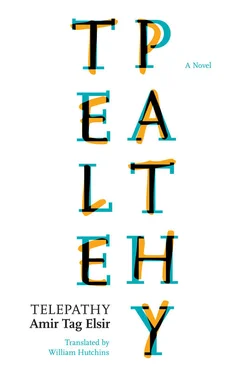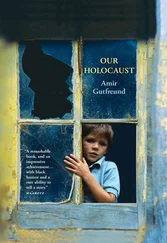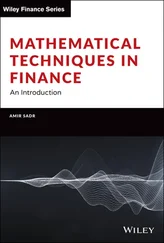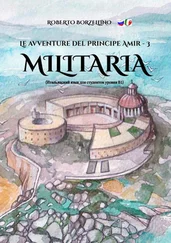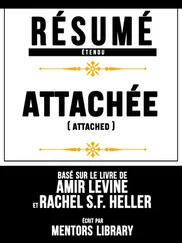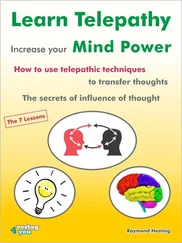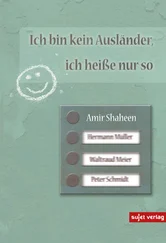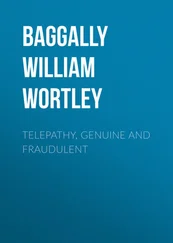One morning my doorbell rang while Umm Salama was putting the house in order with her muddled, lame management. That day she was peeved because one of her adolescent sons had seen a new mobile phone — a Samsung Galaxy Note — which would allow him to maintain continuous, secret communication with his guy friends and perhaps even with some girls he knew through free chat apps like Firebird and WhatsApp. He had threatened to leave home and live on the streets sniffing gasoline if she didn’t get it for him. I promised to obtain this phone for her two sons, feeling I couldn’t believe I had made such a promise when my income, although it came from various sources, wasn’t large enough to satisfy the ambitions of adolescent boys who had never realized that they had been born of the womb of a mother who struggled to support them.
I opened the door myself, surprised to find that someone was knocking on my door, on which no one usually ever knocked. I was stunned to see the lad Shu‘ayb Zuhri before me, wearing a broad straw hat and a gray necktie inside out. I noticed that the tie’s brand name was Shashu, which I had never heard of before. He had a cigarette butt in his mouth and carried a thick brown notebook. The person beside him looked familiar, but I couldn’t place him at that precise moment.
How had Zuhri found my house? Who had directed him to the gate of my secluded hideaway, which he had desecrated so simply?
I was thinking this over, and my mind was severely distressed. Zuhri’s damn stories had filled my old Nokia phone’s memory. I would erase them, and they would immediately be restocked. I hadn’t paid much attention to them recently, after I grew used to them. Now, however, I felt upset because from today forward my house stood defenseless.
“How did you find your way here?” I asked Zuhri as I attempted to show that I wasn’t suffering from cramps, heartburn, or a surge in blood pressure.
Zuhri was quite composed, as perfect as a disaster. His companion — who was about sixty-five I guessed from the appearance of his face, his still eyes, and his scruffy beard — was searching for something in his pockets, perhaps a cigarette or a pouch of tobacco, I wasn’t sure.
Zuhri replied, “Normal, very normal. Since you live in this country, anyone who wants to will be able to find you without any difficulty. You should live at the North Pole or in Australia if you really want to isolate yourself from other people,” he added with the worst smile anyone has ever beamed my way. In the process, his cigarette slipped from his mouth and fell to the ground.
I cursed his smile privately with epithets I rarely use in public and at the same time remembered his companion. He was, by God, Asim Ajib, who was known as Asim Revolution, a former Communist. Asim had spent a considerable number of years in the prisons of successive regimes. He wrote impassioned poetry that, in the past, he used to distribute to students in the universities in secret handbills. I had heard recently that he founded or was attempting to found a publishing house, after renouncing Communism and its gloom. I hadn’t seen him for more than twenty years.
“Asim Revolution?” I cried out in disbelief.
The man held out his hand to greet me and, in a voice that tobacco abuse had stripped of all its identifying features, replied, “Asim Ajib. The revolutionary age has ended.”
I opened the door all the way and invited them in.
I didn’t know what could have linked a former Communist with a poor, obscure short story writer who lived in a construction zone. I could not imagine why they would be visiting me at home, unless the nascent publishing house was the missing link. By God, I didn’t want to think that Zuhri’s stories would be published. This was another crisis set to hang itself around my neck; I could see myself being asked to write an introduction for the stories. I cursed Hunger’s Hopes as I always do now when I sink into a new quagmire.
We sat in the library — the living room. It was crammed with books and contained excellent leather armchairs. My visitors’ eyes widened as they scanned the books, almost melting them. “All these books?” Zuhri remarked.
“Have you really read all of them?” asked Asim Revolution, who had risen from his chair. He reached out and plucked from its resting place on a shelf A Tale of Love and Darkness by the Israeli author Amos Oz. It was massive, and the rest of the books on the shelf, which had been leaning against it, rocked when he pulled it out.
“Amos Oz? I haven’t heard of him. Is he Jewish?” he asked.
I didn’t answer. It wasn’t my problem that he hadn’t heard of him. Zuhri stood up and seized a copy of one of the cheap novels that are given to me on one of my trips. I had only read two pages of this book.
The time I spent in the company of the two intruders, Zuhri and Asim Revolution, was foul and fatuous. I didn’t offer them so much as a glass of water. They attempted to prolong their stay with periods of silence and interrupted sentences, which they repeated at times, while I tried to abbreviate it with a boorishness I rarely resort to but can turn on in trying times.
What happened was that I stumbled upon the complimentary sentence I had used to honor Zuhri the day he read me “A Don Quixote with Absolutely No Connection to Cervantes” in Wadi al-Hikma, when I went there with my brother, Muzaffar, to search for Nishan, other similar sentences I written, without intending anything in particular in them, in response to his insistent text messages that came to my mobile phone, and some further paragraphs that I really hadn’t spoken or written, but which had been composed on my behalf. He had written all these down or penciled them in with extreme care and placed my name beneath all these on the back cover of Shu‘ayb Zuhri’s story collection. It was called Worst City — Failed State and would be released shortly by the Nonaligned Publishing House, which belonged to the former Communist Asim Revolution, who aspired to present gifted new authors.
This was the alliance that had undermined my isolation and plundered my time. How could I have been stupid enough to provide him a possibility that wasn’t a reality by opening the door to find these two men? As a matter of fact, this wasn’t new; I had often been exposed to comparable situations. I remember once discovering a Romance novel — written by someone called Life Pulse — that had on its cover an encouraging comment attributed to me. I did not know who had composed the blurb and could not find out, because the novel had been self-published and the author was himself a ghost. No one had heard of an author named Life Pulse. In newspapers, I had also frequently come across interviews that I hadn’t given. These were assemblages of interviews I had granted previously — rewritten in new ways — or else dialogues someone had conducted with himself and attributed to me.
I mentioned to my visitors being embarrassed by views that I had never agreed to, views that might have been meant merely as compliments, and complained of the exploitation of my name without my knowledge. Zuhri, who was killing me with his sinister smile, rebutted my allegation that I didn’t know about his plan, pointing out that at least I did now. He also contended that even if I hadn’t known, the book’s publication would not harm me at all. These were simply remarks I had actually made to him or written to him in text messages. Asim Revolution flared up zealously in a way that reminded me of his past when he would visit us at the university and debate politics in one of the discussion corners that were a characteristic feature of university life at that time.
His theory, which was peculiar to him alone and wasn’t suitable for being popularized as a theory that everyone could follow, was that a youthful writer resembled a recently planted seedling that might grow at a slant or die young if no one watered it. On the other hand, it might sprout leaves, bear fruit, and cast extensive shade if everyone took care to water it.
Читать дальше
